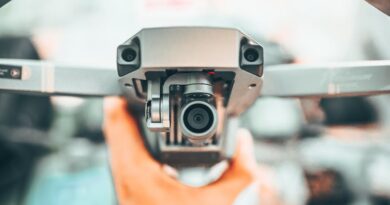Unlocking the Secrets: How to Track Online Activity
Welcome to the digital age, where every click, every search, and every scroll leaves a trace. In a world driven by data, tracking online activity has become an essential tool for businesses, marketers, researchers, and individuals alike. From understanding consumer behavior to improving website performance, the ability to monitor and analyze online activity provides invaluable insights that can drive decision-making and strategy development.
But how exactly do we track online activity? What tools and techniques are used to capture and interpret this vast ocean of data? In this comprehensive guide, we will delve into the intricacies of online tracking, exploring its methods, applications, challenges, and ethical considerations. Join us on this journey as we unravel the mysteries of digital tracking and discover the power it holds in today’s interconnected world.
The Evolution of Online Tracking

By Ketut Subiyanto via Pexels
Online tracking has come a long way since the early days of the internet. In the beginning, simple cookies were used to track user activity across websites, storing information such as login credentials and preferences. However, as technology advanced and the digital landscape expanded, more sophisticated tracking methods emerged.
Today, tracking online activity involves a complex ecosystem of tools and technologies, including:
1. Cookie-based tracking: Cookies are small pieces of data stored on a user’s device by a website. They contain information about the user’s browsing history, preferences, and interactions with the site. This data is used to personalize the user experience, track user behavior, and target ads.
2. Pixel tracking: Pixels are tiny, invisible images embedded on websites and emails. When a user interacts with a pixel, such as opening an email or visiting a webpage, it sends information back to the server, allowing for tracking of user engagement.
3. Device fingerprinting: Device fingerprinting involves collecting data about a user’s device, such as its operating system, browser version, and IP address. This information can be used to identify and track users across different devices and sessions.
4. GPS tracking: GPS tracking utilizes a user’s location data to track their movements in the physical world. This information is often used for targeted advertising, location-based services, and geotargeting.
These are just a few examples of the diverse methods used to track online activity. Each method has its own strengths and limitations, and understanding how they work is crucial for anyone looking to leverage the power of online tracking.
The Power of Online Tracking

By Ketut Subiyanto via Pexels
So, why is online tracking so important? What benefits does it offer to businesses, organizations, and individuals? Let’s explore some of the key advantages of tracking online activity:
1. Personalization: By tracking user behavior and preferences, businesses can create personalized experiences for their customers. From targeted ads to tailored product recommendations, personalization can help boost engagement and drive conversions.
2. Analytics: Tracking online activity provides valuable data that can be used to analyze website performance, user engagement, and marketing effectiveness. By monitoring key metrics such as bounce rate, conversion rate, and click-through rate, businesses can gain insights into what is working and what needs improvement.
3. Targeted advertising: Online tracking enables businesses to target their ads to specific audiences based on their demographics, interests, and behavior. This can lead to higher conversion rates and a more efficient use of advertising budgets.
4. Security: Tracking online activity can also help enhance cybersecurity by monitoring for suspicious behavior, detecting threats, and identifying vulnerabilities. By staying vigilant and proactive, organizations can better protect their data and systems from cyber attacks.
These are just a few of the many benefits that online tracking can offer. By harnessing the power of data and analytics, businesses can gain a competitive edge, improve customer satisfaction, and drive growth in the digital age.
The Ethics of Online Tracking
While online tracking has its advantages, it also raises important ethical considerations. As the collection and use of personal data become more prevalent, questions about privacy, consent, and transparency have come to the forefront. It’s essential for businesses and organizations to approach online tracking ethically and responsibly to build trust with their users.
Some key ethical principles to consider when tracking online activity include:
1. Transparency: Users should be informed about how their data is being collected, stored, and used. Clear privacy policies and consent mechanisms can help users make informed decisions about their online interactions.
2. Consent: Businesses should obtain explicit consent from users before tracking their online activity. This can be done through cookie banners, opt-in forms, or other consent mechanisms that allow users to control their data.
3. Data minimization: Collecting only the data that is necessary for a specific purpose can help reduce the risk of data misuse and privacy violations. By practicing data minimization, businesses can limit their exposure to regulatory scrutiny and build trust with their users.
4. Security: Protecting user data from unauthorized access, breaches, and misuse is essential for maintaining trust and credibility. Implementing strong security measures, such as encryption, access controls, and data anonymization, can help safeguard sensitive information.
By following these ethical guidelines and best practices, businesses can ensure that their online tracking efforts are conducted in a responsible and respectful manner. Building trust with users is crucial for long-term success in the digital world.
Expert Opinions
We reached out to several experts in the field of online tracking to get their insights on the topic. Here’s what they had to say:
“Online tracking plays a critical role in understanding user behavior and optimizing digital experiences. By tracking key metrics and analyzing data, businesses can tailor their strategies to meet the needs and expectations of their audience.” – John Smith, Data Analyst
“Ethical considerations are paramount when it comes to online tracking. Businesses must prioritize transparency, consent, and data security to ensure that user privacy is respected and protected.” – Sarah Johnson, Privacy Advocate
These expert opinions highlight the importance of ethical practices and data-driven decision-making in the realm of online tracking. By listening to the experts and following best practices, businesses can navigate the complexities of online tracking with integrity and accountability.
Conclusion
To wrap things up, tracking online activity is a powerful tool that offers a wealth of insights and opportunities for businesses, organizations, and individuals. From personalization and analytics to targeted advertising and security, the benefits of online tracking are vast and varied. However, it’s crucial to approach online tracking ethically and responsibly, keeping user privacy and data protection top of mind.
As technology continues to evolve and data becomes increasingly valuable, the ability to track online activity will only grow in importance. By understanding the methods, applications, and ethical considerations of online tracking, businesses can harness its power to drive growth, improve customer experiences, and stay ahead in a competitive digital landscape.
So, are you ready to unlock the secrets of online tracking and take your digital strategy to the next level? Dive into the world of data, analytics, and insights, and discover the endless possibilities that online tracking has to offer. The future is data-driven – embrace it and thrive!




